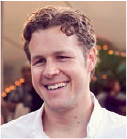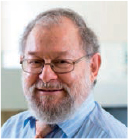Services on Demand
Article
Indicators
Related links
-
 Cited by Google
Cited by Google -
 Similars in Google
Similars in Google
Share
SAMJ: South African Medical Journal
On-line version ISSN 2078-5135
Print version ISSN 0256-9574
SAMJ, S. Afr. med. j. vol.104 n.11 Pretoria Nov. 2014
http://dx.doi.org/10.7196/SAMJ.9003
GUEST EDITORIAL
CONTINUING MEDICAL EDUCATION
Immunology as a medical discipline in South Africa: Why, how and what form?
Immunology underlies most of the biological and clinical disciplines in medicine, including autoimmune diseases, infectious diseases and HIV, primary immunodeficiency, allergy, cancer and transplantation medicine. The formalised use of immunology knowledge, laboratory techniques and targeted immunotherapies in routine clinical practice is currently commonplace in most parts of the world. It is the most rapidly advancing field in medicine, and there is a definite need for generalists to keep up with advances in knowledge that impact on patient management. This is the impetus behind this month's CME entitled 'Updates in immunology and allergy'. The medical community, both clinical and pathology disciplines, can no longer afford to see immunology as a 'black box' discipline irrelevant to day-to-day patient management or only applicable to the uncommon case of immunodeficiency or autoimmune disease. For South African (SA) doctors this means considering immunology beyond HIV medicine. Is it time for immunology in SA, amidst competing public health needs, to be established as a distinct specialty or sub-specialty discipline?
Globally, an expanding knowledge base continues to identify fundamental roles for the immune system in the pathogenesis and pathology of an increasing number of common non-communicable and communicable diseases, e.g. asthma, rheumatic heart disease, inflammatory bowel diseases, multiple sclerosis, type 1 diabetes, rheumatoid arthritis, and immune cytopenias. Following this, and with parallel technological advance, there is an explosion in the development and clinical use of targeted immunotherapies. For instance, in just three decades, over 30 different monoclonal antibodies have been licensed in the USA and Europe for conditions such as cancer and rheumatoid arthritis and for the prevention of transplant rejection. 1 More importantly, some of these are now standard of care - not only in resource-rich tertiary care settings. Approximately 2 500 patients in SA, including 1 - 2% in the public sector, receive biologic therapy (SARA registry, B Hodkinson - personal communication). Tarr et al 2 review registered biologics and their use in this issue of the journal . The abovementioned number of patients will likely increase in the future owing to confirmed efficacy in patients whose disease has not been controlled with conventional medication. Numerous other monoclonal antibodies are in the advanced stages of development, and the 'biosimilar' market is growing; this will mean increased accessibility and affordability for developing countries. Furthermore, our ability and insight on how to interrogate patients' immune functioning and their underlying genotype are becoming increasingly more specialised and affordable. Over 200 inborn errors of immunity have been described with protean clinical manifestations; 30 novel genetic defects have been described in the past three years alone. 3 Increasingly, molecular studies are also contributing to the diagnosis of primary immunodeficiency. The need for a specialist immunology knowledge base and clinical service is expanding.
We believe that practising clinicians, from generalists to sub-specialists across a number of disciplines, already require a good understanding of immunology in the context of the HIV epidemic, but will increasingly require an improved understanding of immunological concepts and therapies for good clinical practice. Immunology laboratory and pathology infrastructure and services are essential to support advanced diagnosis and treatment. What may not be clear is how a growing need for clinical and pathology immunology training, services and infrastructure development can be met within the context of competing public health needs. Perhaps a medical crisis, such as the Ebola outbreak, represents a good example of where immunology knowledge and an understanding of immunotherapy and vaccination is at the cutting edge of public health.
The current state of immunology in SA, outside of HIV and tuberculosis (TB), is worrying. There is no established immunology medical specialty or sub-specialty. This was shown in a 2001 survey of university hospitals in Africa, identifying only seven clinical immunologists. 4 The co-ordination of immunology teaching to medical and science students at undergraduate and postgraduate level in SA is fragmented. Curricula vary from university to university, with some programmes incorporating minimal and outdated immunology teaching at undergraduate level owing to lack of relevant faculty. Postgraduate training also varies, with the focus at well-established research-intensive universities on laboratory-based MSc and PhD immunology projects, which track students on a research career path only. Consequently, SA has some of the world's leading researchers in infectious disease immunology and vaccinology, particularly in TB and HIV medicine. Many of these laboratories use very advanced molecular and cellular immunology tools and equipment. Here lies the dichotomy, which is the concern. Few, if any, of these tools and infrastructure are available or geared to investigative patient care and for routine patient management. With the rationalisation of testing within provincial and national structures, it continues to be a struggle to maintain even a limited repertoire of tests to evaluate immune function, given their relative expense and low-test volumes. Not only does this mean that in many provinces immunodeficiency other than HIV is simply not diagnosed, with consequent morbidity and mortality, but that critical human resource capacity is being lost with impact on the future growth of training and service. A number of approaches are needed to address these concerns. Academic institutions should strive for a model of seamless integration of immunology research, research and development, a clinical service, provision of tertiary specialised immune diagnostic assays, and teaching of immunology to under- and postgraduate students. In addition, we believe that the establishment of immunology into its own medically registered discipline would be a key component for growth and long-term sustainability of pathology and clinical services, research and continuing medical education.
In the USA and UK, the discipline of Clinical Immunology, linked with allergy training, is more than three decades old, with over 4 000 registered specialists in a 2004 USA survey. 5 International training curricula are well established. 6Recognition as a distinct discipline has offered a number of advantages, including: (i) improved patient care through unification of practitioners, allowing for better advocacy; (ii) improved training and teaching through co-ordination at a national level; (iii) improved research via the development of centres of excellence; and (iv) growth of the discipline. There remains considerable heterogeneity in the set-up of the discipline across countries, including: (i) whether allergy and clinical immunology are considered as unified or separate disciplines; (ii) whether the discipline is a primary specialty or sub-specialty; and (iii) whether it is administered in the colleges of pathology, medicine or paediatrics. Therefore, the Health Professions Council of SA will be approached to register immunology as a sub-specialty, and the National Health Laboratory Service Immunology Expert Committee is embarking on a scoping exercise to identify how immunology is considered in the SA medical community and how best to move forward towards such registration. Please participate in this survey by accessing https://www.surveymonkey.com/s/RVPW5RM. It is hoped that in the coming years immunology as a discipline will find a strong and distinct identity integrated into the fabric of high-quality SA healthcare.
1. Buss NA, Henderson SJ, McFarlane M, Shenton JM, de Haan L. Monoclonal antibody therapeutics: History and future. Curr Opin Pharmacol 2012;12(5):615-622. [http://dx.doi.org/10.1016/j.coph.2012.08.001]
2. Tarr G, Hodkinson B, Reuter H. Superheroes in autoimmune warfare: Biologic therapies in current South African practice. S Afr Med J 2014;104(11):787-791. [http://dx.doi.org/10.7196/SAMJ.8947]
3. Al-Herz W, Aldhekri H, Barbouche MR, Rezaei N. Consanguinity and primary immunodeficiencies. Hum Hered 2014;77(1-4):138-143. [http://dx.doi.org/10.1159/000357710]
4. Sibanda EN. Research and clinical aspects of immunology in Africa. Curr Opin Immunol 2001;13(5):528-532.
5. Marshall GD, American Academy of Asthma and Allergy, Immunology Workforce Committee. The status of US allergy/immunology physicians in the 21st century: A report from the American Academy of Allergy, Asthma and Immunology Workforce Committee. J Allergy Clin Immunol 2007;119(4):802-807.
6. World Health Organization/International Union of Immunological Societies/International Association of Allergy and Clinical Immunology. Clinical immunology: Guidelines for its organization, training and certification; relationships with allergology and other medical disciplines - a WHO/IUIS/IAACI report. Clin Exp Immunol 1993;93(3):484-491.

Jonathan Peter Guest editor, Division of Allergology and Clinical Immunology, Department of Medicine, Faculty of Health Sciences, University of Cape Town, South Africa. jonny.peter@uct.ac.za

Stanley Ress Guest editor, Emeritus Associate Professor of Medicine, Faculty of Health Sciences, University of Cape Town, and UCT Private Academic Hospital, Cape Town, South Africa. stan.ress@uct.ac.za

Clive Gray Guest editor, Wernher Beit Chair of Immunology, Division of Immunology, Institute of Infectious Disease and Molecular Medicine, Department of Clinical Laboratory Sciences and National Health Laboratory Service, University of Cape Town, South Africa. clive.gray@uct.ac.za














